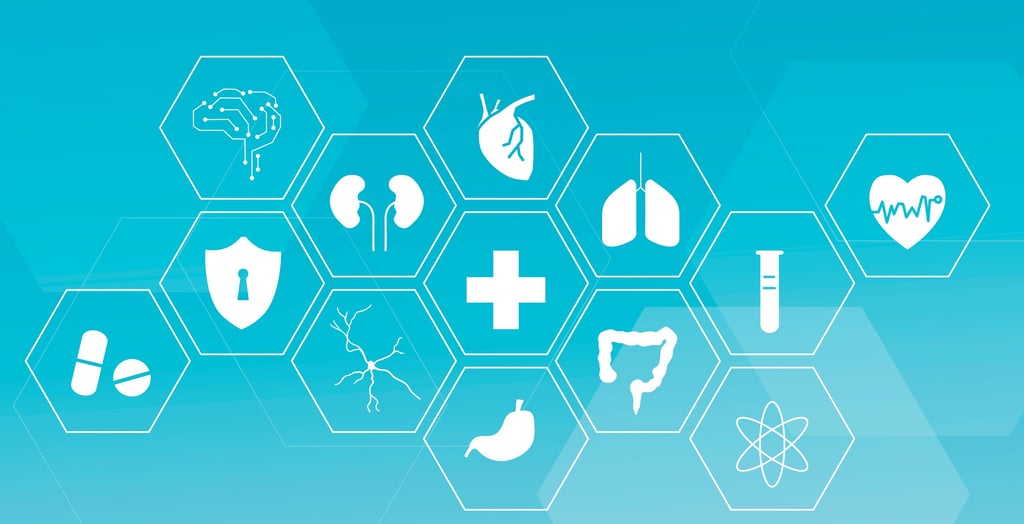The Path to Better Health
Muhammad Riaz
3/13/20253 min read


The Importance of Maintaining Good Health: A Path to a Better Life
Good health is the foundation of a fulfilling and successful life. It affects every aspect of our existence, from our energy levels to our mood, productivity, and overall well-being. In today’s fast-paced world, maintaining good health is often overlooked, but prioritizing your physical and mental health is essential for long-term happiness. In this blog, we’ll explore the importance of good health and how you can take simple steps to improve it.
1. Physical Health: The Key to Vitality
Physical health is the cornerstone of overall well-being. Maintaining a healthy body allows you to have the energy and stamina to perform daily tasks and enjoy life to the fullest.
Exercise Regularly: Aim for at least 30 minutes of physical activity each day. Activities like walking, jogging, yoga, and strength training help improve cardiovascular health, build muscle, and reduce stress.
Eat a Balanced Diet: Incorporate a variety of whole foods such as fruits, vegetables, lean proteins, and whole grains. Avoid processed foods high in sugar and unhealthy fats.
Get Enough Sleep: Aim for 7-9 hours of quality sleep each night to allow your body to rest, recover, and repair.
Taking care of your physical health not only enhances your appearance but also boosts your immune system, reduces the risk of chronic diseases, and helps you feel more energetic and focused.
2. Mental Health: Nurturing Your Mind
Mental health is just as important as physical health. A positive and resilient mindset can help you overcome challenges and lead a more fulfilling life.
Practice Mindfulness: Take time each day to relax, meditate, or practice deep breathing exercises. This helps reduce stress, anxiety, and promotes emotional well-being.
Stay Connected: Build and maintain strong relationships with friends and family. Social support is crucial for mental health and can improve feelings of belonging and security.
Seek Professional Help: If you’re feeling overwhelmed, depressed, or anxious, don’t hesitate to seek guidance from a mental health professional. Therapy and counseling can provide valuable tools for managing emotions and improving mental well-being.
Taking care of your mental health is essential for maintaining balance in your life. A healthy mind contributes to better decision-making, higher productivity, and improved emotional regulation.
3. Preventive Care: Proactive Measures for Long-Term Health
Prevention is always better than cure. Regular check-ups and preventive care can help detect potential health problems before they become serious, saving you time, money, and stress in the future.
Regular Screenings: Visit your doctor for routine check-ups and screenings based on your age and health history. Early detection of issues like high blood pressure, diabetes, and cholesterol problems can prevent complications.
Vaccinations: Stay up-to-date with necessary vaccinations to protect yourself from infectious diseases and illnesses.
Healthy Habits: Avoid smoking, limit alcohol consumption, and manage stress. These habits can significantly reduce your risk of chronic conditions like heart disease, diabetes, and certain cancers.
Taking preventive measures allows you to stay ahead of potential health risks and maintain a long, healthy life.
4. Hydration: The Importance of Drinking Water
Drinking enough water is often overlooked but is crucial for your body’s overall function. Water keeps your body hydrated, aids in digestion, and helps regulate temperature.
Drink Plenty of Water: Aim to drink at least 8 glasses of water a day. Adjust this amount depending on your activity level and climate.
Limit Sugary Beverages: Reduce your intake of soda, energy drinks, and excessive caffeine, as these can dehydrate the body and contribute to weight gain.
Eat Water-Rich Foods: Incorporate foods like cucumbers, oranges, and strawberries, which contain high water content and help with hydration.
Proper hydration supports healthy skin, promotes kidney function, and keeps you feeling energized and alert throughout the day.
5. Building Healthy Habits: Consistency is Key
Building lasting healthy habits requires consistency and dedication. Small, sustainable changes can add up to major improvements over time.
Start Small: Begin with simple steps like drinking more water or adding a 10-minute walk to your routine.
Create a Routine: Develop a daily routine that incorporates exercise, balanced meals, and relaxation.
Set Realistic Goals: Set achievable health goals, and track your progress. Celebrate your successes along the way, and don’t be discouraged by setbacks.
Healthy habits are the foundation of good health. By staying committed to positive changes, you can improve your quality of life and boost your overall well-being.
Good health is a lifelong journey that requires attention to both your physical and mental well-being. By adopting a balanced lifestyle that includes regular exercise, healthy eating, mental health care, and preventive measures, you can achieve and maintain a healthy, vibrant life. Remember, small steps taken consistently can lead to big changes over time, so start today and take charge of your health for a better tomorrow.
What’s one health habit you want to focus on this year? Share your thoughts in the comments!


Thank you for visiting EaglesSky – where innovation, creativity, and growth come together.
We are dedicated to empowering you with books, poetry, skill development content, insightful blogs, and expert guidance. Stay connected and continue your journey with us!
